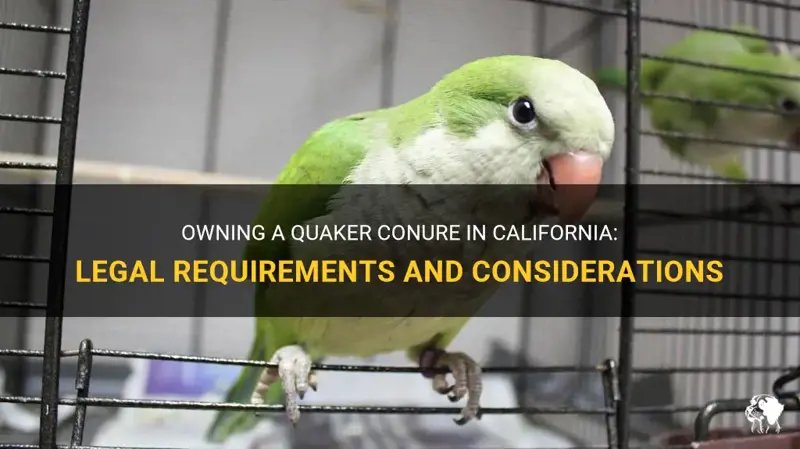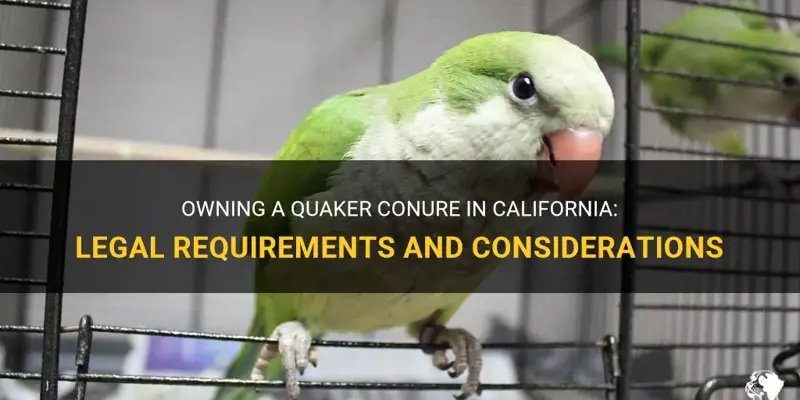
Each area can have unique regulations that affect pet ownership, especially with exotic birds like conures. What may be acceptable in one city could be a big no-no in another. You might be wondering if there’s a required permit, specific housing guidelines, or even restrictions on certain species. Let’s dig deeper into these aspects so you can navigate your conure ownership journey smoothly.
Understanding Local Regulations and Permits
First off, let’s talk about the basics: do you need a permit to own a conure? The answer often depends on where you live. Some states or municipalities regulate exotic pets strictly. For example, in California, certain bird species may require a permit, while other areas might have no permit requirements at all. Here’s how to approach this:
- Check Local Laws: Start by searching for your local wildlife agency or animal control. They typically provide guidelines on pet ownership.
- Understand Definitions: Some laws might define “exotic pets” differently, so ensure conures fall under that category in your jurisdiction.
- Permits and Fees: If a permit is needed, find out the application process, costs, and any annual fees that may apply.
Engaging with local resources can save you from potential legal troubles that could arise from owning your feathered friend without proper documentation. It’s like getting a license to drive—you wouldn’t want to risk getting pulled over without one!
Species-Specific Restrictions
Here’s the thing: not all conures are created equal in the eyes of the law. Some species might be more heavily regulated than others. For instance, the Sun Conure is often regulated because of its popularity and high demand. In contrast, other species might not raise as many eyebrows. Understanding which species you can legally own is crucial for compliance.
To navigate this effectively:
- Research Your Conure’s Species: Look into the specific laws relating to the type of conure you want to adopt. Sources like local avian clubs or bird forums may provide valuable insights.
- Contact Your Local Wildlife Authority: If you’re unsure, a quick call can clarify whether your desired species is legal to own.
- Consider Alternatives: If certain species are restricted, think about adopting a different type or even a different animal altogether.
Having this knowledge upfront can prevent heartache later if you find out after purchasing that your chosen conure isn’t legally allowed.
Housing Requirements
Owning a conure isn’t just about the bird; it’s about giving it a suitable environment. Many places have regulations governing how you should house your pet. The standard guideline is that your conure needs plenty of space to move around—both in its cage and outside of it during supervised time.
Here are some common housing requirements:
- Cage Size: Many jurisdictions recommend specific cage sizes based on the bird’s species and size, so ensure you meet those standards.
- Materials: The cage should be made from non-toxic materials. If your cage is painted, ensure it’s free of harmful chemicals.
- Outdoor Safety: If you plan on letting your conure outside, ensure fenced areas or enclosures meet local rules regarding wild animal interactions.
Think of your bird’s cage as its home—the more comfortable and secure the environment, the happier your conure will be.
Noise Restrictions
Conures are known for their spirited chatter and sometimes loud squawking. While that’s part of their charm, it can also land you in hot water if there are noise restrictions in your area.
You might want to consider the following:
- Apartment Living: If you’re in an apartment, check with the landlord or homeowners’ association about any noise regulations.
- Neighborhood Complaints: In tight-knit communities, a loud bird can lead to complaints from neighbors, so having a plan to manage noise is vital.
- Training: Some owners successfully train their birds to be quieter or to be more vocal at certain times, which might help in noisy neighborhoods.
Understanding local expectations about noise can prevent your conure from becoming a source of conflict.
Health and Veterinary Care Regulations
Just like you would with a dog or cat, ensuring your conure has regular veterinary check-ups is essential. Some areas might have specific regulations around veterinary care for exotic pets, so it’s worth checking into.
Here’s what to keep in mind:
- Find an Avian Vet: Not all veterinarians specialize in birds, so locate one that’s knowledgeable about conures.
- Vaccination Requirements: Some regions might require certain vaccinations for exotic birds. It’s a good idea to ask your vet what your conure will need.
- Health Certificates: If you’re traveling with your conure or moving to another area, you might need a health certificate from your vet.
Keeping your feathered friend healthy not only helps them live longer but also complies with local laws regarding animal health.
Insurance Considerations
While it seems a bit odd for a bird, some areas encourage or require pet insurance for exotic pets. This could protect you from unexpected veterinary bills. Here are a few pointers:
- Look for Specialized Coverage: Not all pet insurance covers birds, so search for plans that specifically include avian care.
- Understand the Costs: Get quotes and compare coverage options to see what suits your budget while providing adequate protection.
- Read the Fine Print: Look for exclusions or specific conditions regarding what is covered and what isn’t.
Investing in insurance is like having a safety net. It can greatly relieve financial stress if something unexpected happens.
Final Thoughts
Bringing a conure into your life can be incredibly rewarding, but it’s essential to navigate the legal landscape carefully. From understanding local regulations and species-specific restrictions to knowing the nuances of housing and health care, having this information is crucial for responsible ownership.
Think of it as giving your feathered friend the best home possible—one that respects both the law and the needs of your adorable new companion. By being informed and prepared, you can enjoy all the laughter and joy that owning a conure brings, without any legal hiccups. Happy bird-parenting!

